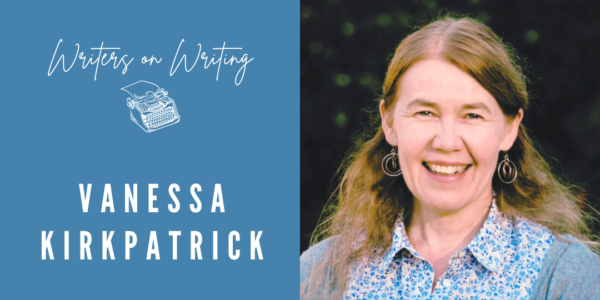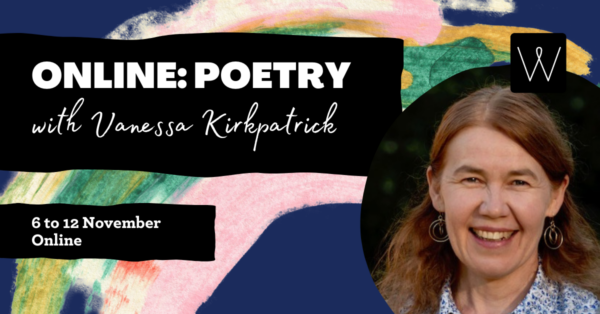What is an ‘authentic voice’ in poetry? Is it hard for writers to develop?
In order to articulate my ideas about what it means to write in an authentic voice in poetry, I will start with a quotation from Seamus Heaney’s eloquent essay on this idea, ‘Feeling into Words’. In this essay, Heaney writes that, “Finding a voice means that you can get your own feeling into your own words and that your words have the feel of you about them.”
A poem is a unique combination of the elements of craft (such as sound, metre and rhythm) with content – that is, those ideas that have surfaced from memory, experience and imagination. To me, a writer is composing in their authentic voice at the point where the poem is in tune with the meaning the poet most wants to express – when craft is coherent with content; when the words, imagery and texture of the poem have the feel of stemming from one particular individual expressing their own experience, emotions, imaginings and perceptions.
To my mind, this is what makes a poem jump off the page, what makes it memorable. It’s a strange magic of poetry that the more specific you are, the more widely your poem will be understood. And the same is true for voice: I believe that the more strongly your words have the feel of you about them, the wider and more potent their reach into the imaginations and minds of the readers. Authors often write about similar ideas and imaginings, but it is writing in your own voice that is what will lend your poetry its unique quality.
Writing in your authentic voice is not difficult to develop as it is always there, inside you, waiting to be found and listened to. It is often a question of courage, of asking the difficult questions: what is the meaning that you most want to express? It is also a matter of discipline, of facing the blank page and filling it with words that come from the centre of who you are. Finally, it is a matter of letting go of your writing ego – letting go of ideas about what you should write, what you would like to write, or your perception of what might be most well received in the writers’ marketplace.
This doesn’t mean that you need to write about personal experience and memory – it simply means that you write the words that are a unique expression of you; the words watermarked through your voice.
Where do your inspiration and ideas come from?
The central preoccupations of my poetry are nature and human relationships. My second book of poems was called The Conversation of Trees, which reflects my preoccupation with the natural world. I have lived in the Blue Mountains for most of my life, so this landscape of living on a ridge surrounded by vast areas of national park has shaped my experience and my writing.
My ideas and inspiration come from close observation, and I would like to think, a kind of listening to things. As Rumi wrote, “The quieter you become, the more you are able to hear.”
I also write poems based on standing in other people’s shoes – poems in which I intertwine excerpts from letters and diaries of distant ancestors to re-imagine their lives.
Can you tell us a couple of your favourite published poetry collections? What makes them stand out?
My love of poetry came firstly from the musicality of it – I fell in love with the poetry of John Keats and Dylan Thomas long before I had the emotional maturity to understand the content of the poems – and secondly, the way a poem can resonate within the heart. And it is the use of metaphor that I see as one of the keys to poetry’s capacity to, in words taken from Seamus Heaney’s sonnet ‘Postscript’, “catch the heart off guard and blow it open”.
And so I am drawn to poetry that is finely crafted and rich in metaphor, such as Carol Ann Duffy’s Rapture, Seamus Heaney’s Opened Ground, Ada Limón’s The Carrying and Anne Carson’s The Glass Essay. Stand out collections that combine these elements with a raw, visceral energy include Ali Cobby Eckermann’s Ruby Moonlight, Tishani Doshi’s Girls are Coming out of the Woods and Sharon Olds’ Stag’s Leap.
I like poetry of precision, in which each word is there because it lends power to the poem.
Vanessa Kirkpatrick is an award-winning poet and writer. Her first poetry collection, To Catch the Light, won the John Knight Poetry Manuscript Prize. Her second collection, The Conversation of Trees, was published in 2017. She has a PhD in English literature and is an experienced teacher and creative writing mentor.
Enrol in Online: Writing Poetry with Vanessa Kirkpatrick, online from Wednesday 6 to Tuesday 12 November.
If you want to be the first to read great advice from our incredible tutors, subscribe to our weekly e-newsletter Newsbite.
More from Writing NSW
Check out our full range of in-person writing courses in Sydney, our online writing courses and our feedback programs to see how we can help you on your writing journey. Find out about our prizes and competitions, as well as writing groups across NSW, and sign up to our weekly newsletter for writing events, opportunities and giveaways.


